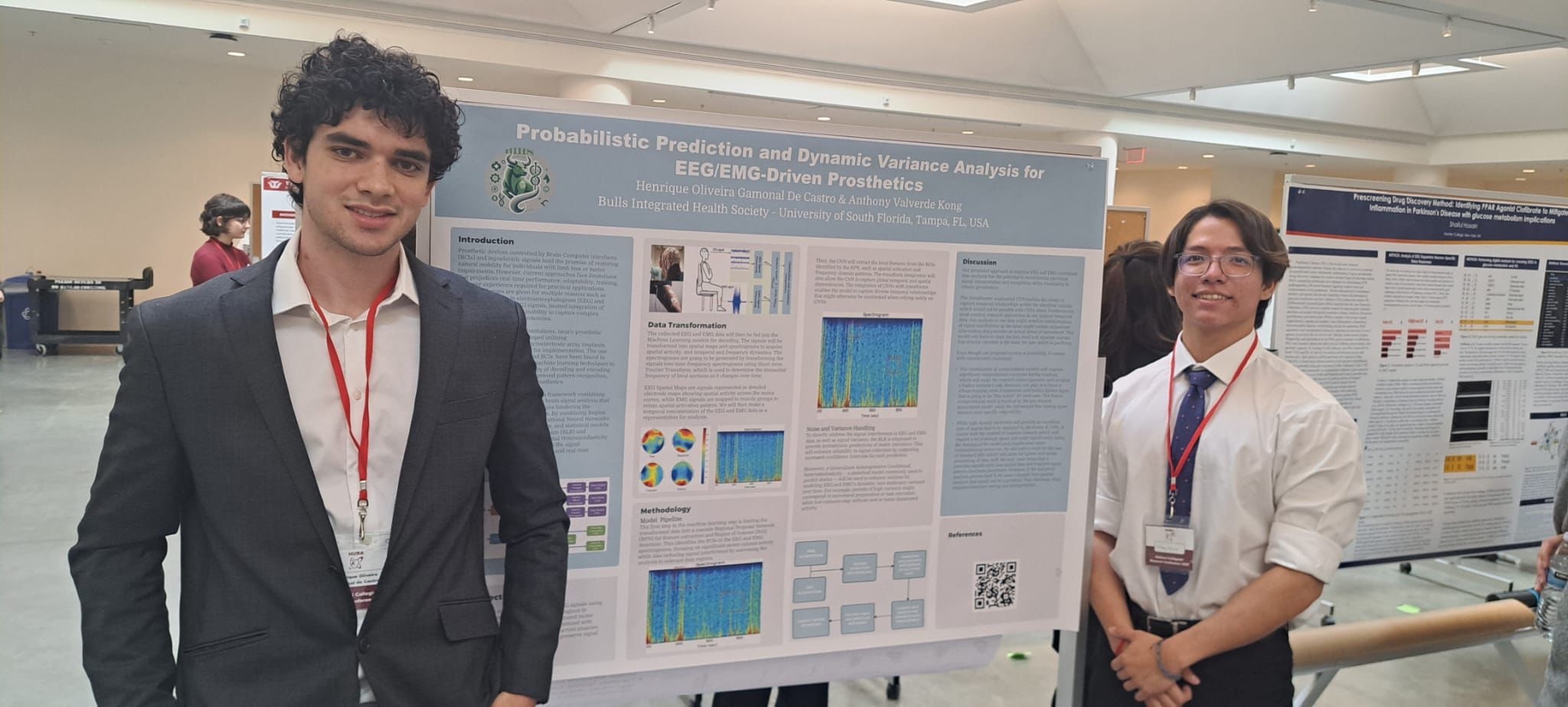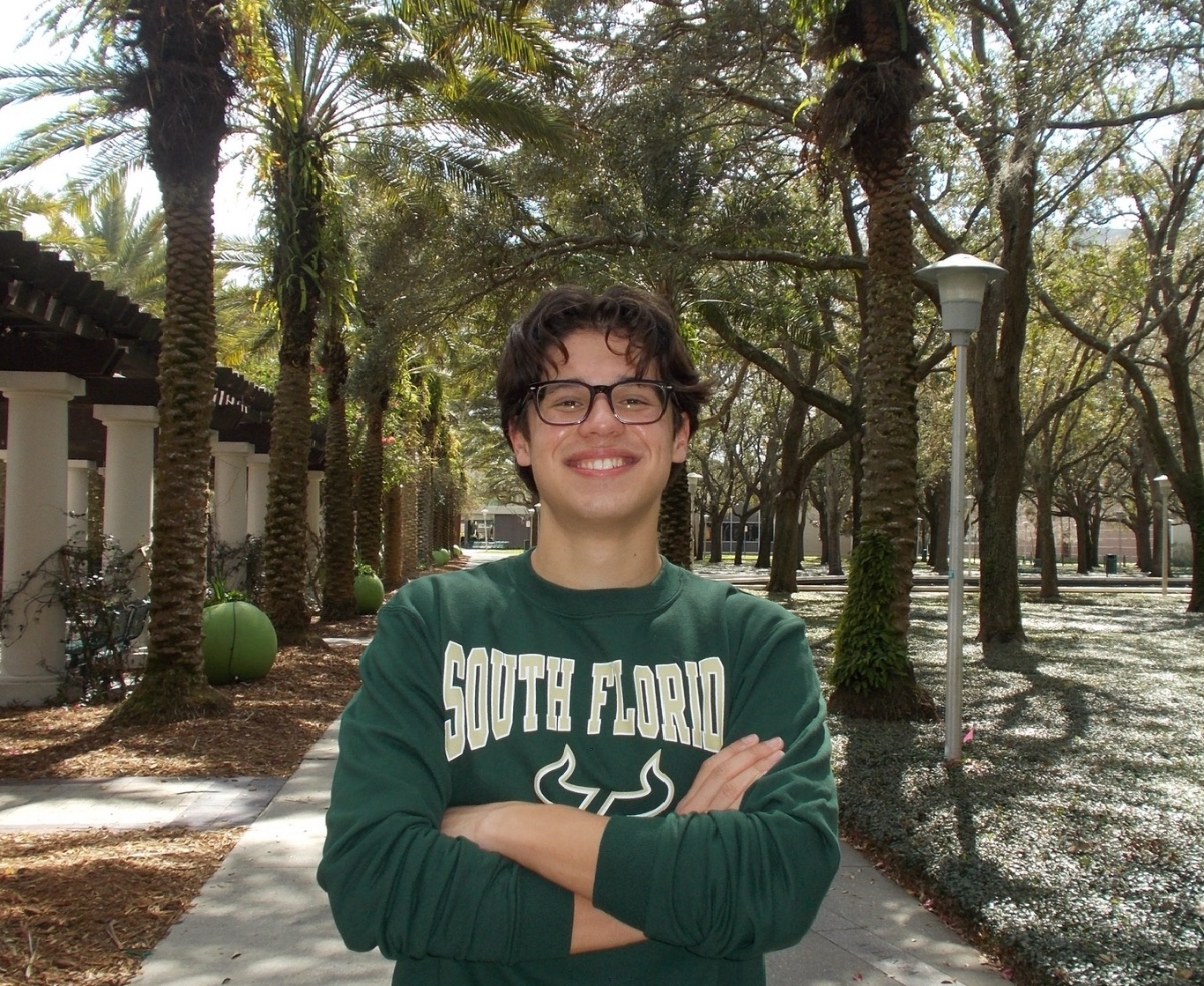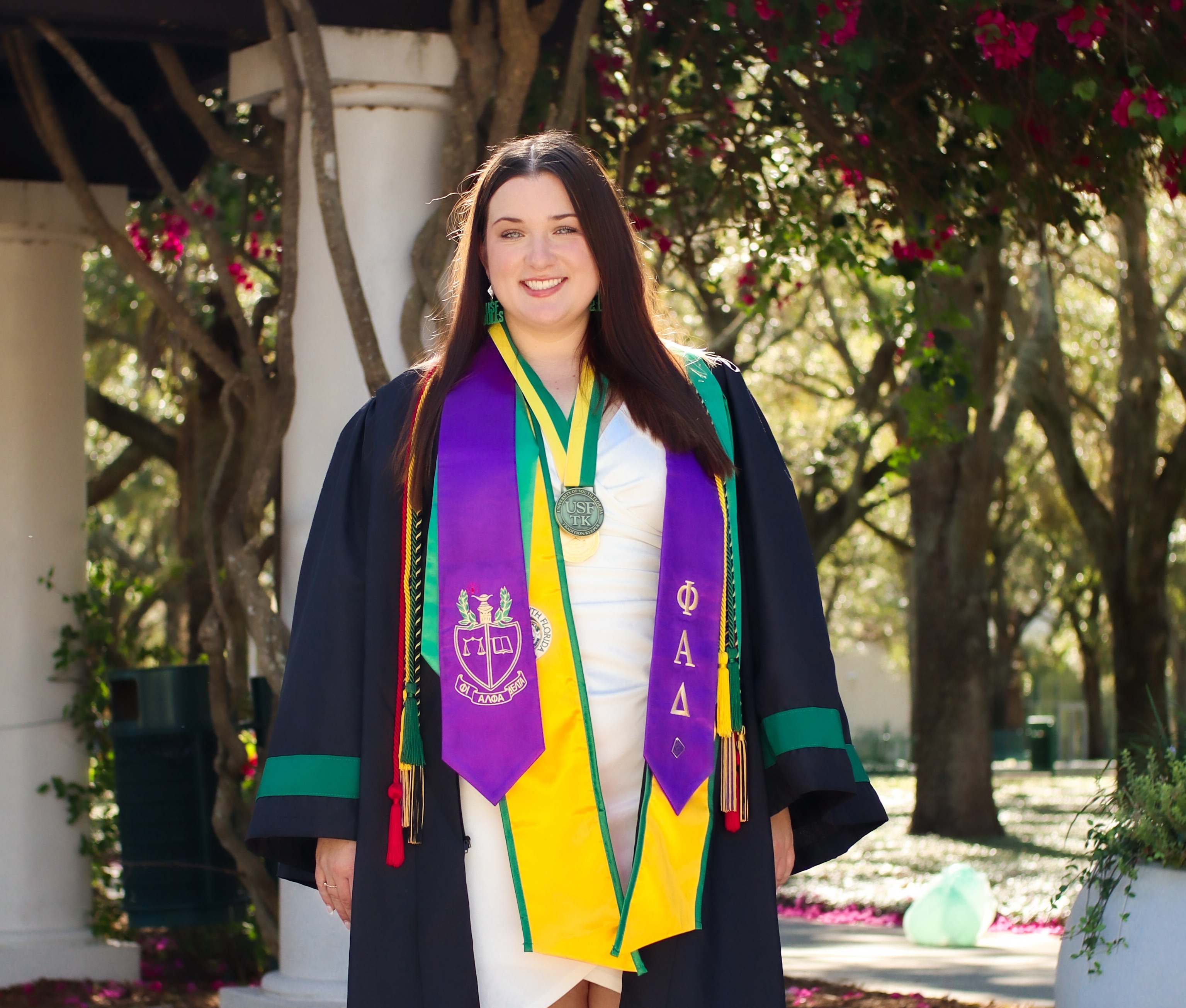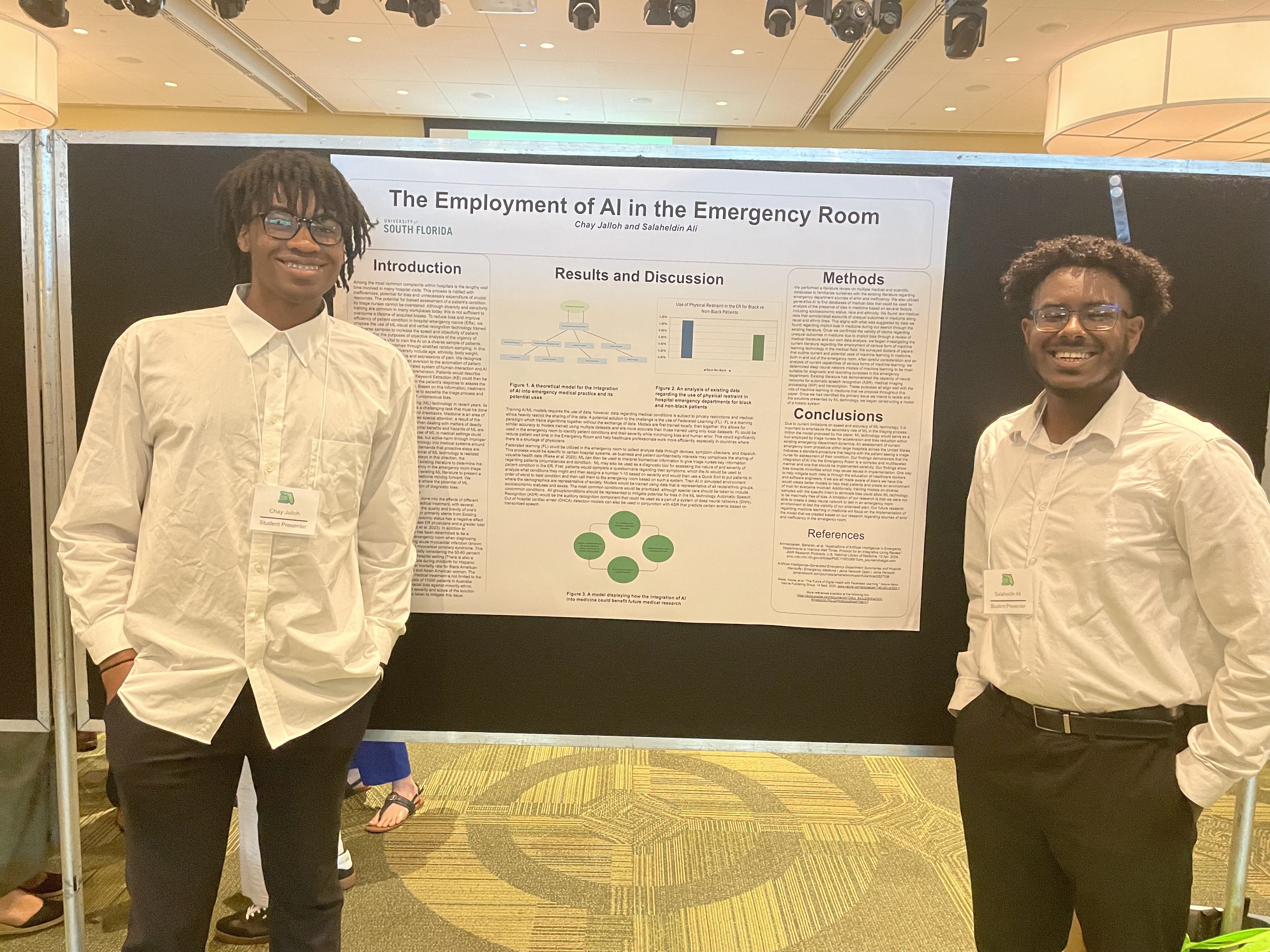By: Cassidy Delamarter, University Communications and Marketing
From investigating microplastics to exploring the depths of artificial intelligence, hundreds of USF students are addressing real-world challenges in their research before they even graduate. Among the 800 student researchers from across Florida, nearly 200 USF students presented their work at the 2025 Florida Undergraduate Research Conference, one of the largest multidisciplinary research conferences in the country, available to all undergraduate researchers in Florida. Held on the USF Tampa campus, the two-day conference showcased a variety of innovative research from 33 Florida colleges and universities.
Using AI to bridge the gap between brain activity and prosthetics
Henrique Oliveira Gamonal de Castro, a junior computer science major, and Anthony Valverde Kong, a junior mechanical engineering major, are working to improve the quality of life for patients with limb loss.

Henrique Oliveira Gamonal de Castro and Anthony Valverde Kong
The dynamic duo first met three years ago when they discovered a mutual passion for addressing health issues.
“We found a way to merge my interest in AI and health with his interest in biomedical engineering and prosthetics,” Castro said. “We reviewed several articles about integrating AI with robotic prosthetic control and we pinpointed the main obstacles that were being faced and we formulated a possible solution.”
Now they are developing a new machine learning model that could improve patients’ prosthetic control and enhance rehabilitation strategies for individuals with neuromuscular impairments. Traditional prosthetics typically require extensive physical therapy and have limitations in adaptability, often placing a significant physical and mental strain on patients. Kong and Castro hope that one day their invention could bridge the gap between a patient’s brain and prosthetic by leveraging real-time neural data with machine learning to enhance prosthetic responsiveness and comfort.
“I encourage students to think beyond the boundaries of their major,” Kong said. “Many of us believe that we must strictly stay within our fields, but considering how our discipline intersects with other areas can provide a more multidimensional perspective. This approach will strengthen their passion for their chosen field.
To inspire interdisciplinary research in health among their peers, they recently founded a new student club at USF, Bulls Integrated Health Society, and are accepting new members.
Identifying the prevalence of microplastics in lungs

Alberto Chaves
Inspired by the prevalence of microplastics in the environment and the human body, Alberto Chaves hopes his research will increase microplastic awareness.
“I want to help with the understanding of such a widespread issue that not much is known about,” Chaves said. “There are still so many unknowns about microplastics that are essential for creating regulatory change and increasing awareness.”
Chaves, a freshman studying chemical engineering, is investigating the presence of microplastics in the human respiratory system and their potential correlation to illness. By analyzing samples of fluid found in the lungs, he found several microplastics in patient samples.
Chaves aims to expand this work to other organ systems and fluids, with long-term goals of continuing his education to become a physician scientist and continue medical research.
Exploring the emotional intelligence of domesticated animals

Kayla Domres graduation December 2024
Kayla Domres, a recent USF business management alumna, aspires to work in disability law and advocacy. Her passion to help people inspired her to improve policies and accessibility for people with emotional support animals by emphasizing their medical necessity.
Her study highlights the unique role emotional support animals play in fostering social connections and emotional resilience, highlighting the need for greater awareness and legal recognition of their contributions, distinct from service animals.
Domres investigated how domesticated companion animals, such as dogs, cats and rabbits, develop emotional intelligence through their close relationships with humans. She found that many owners believe their pets recognize nonverbal cues and adjust their behavior in response to human emotions, offering comfort during distress.
“This adaptability is a sign of emotional intelligence, showing traits like problem-solving, mindfulness and creativity,” Domres said. “These qualities are key in determining whether an animal can effectively support someone with a disability. It also opens the door for further research into how these animals interact with and support their owners in meaningful ways.”
Integrating AI recognition technology in the emergency room

Chay Jalloh and his research partner, Salaheldin Ali
Inspired by a recent visit to the emergency room, Chay Jalloh is researching how AI could be used to streamline the triage process in hospitals.
Jalloh, a freshman studying physics, is developing an AI-powered system that uses visual and verbal recognition technology to assess conditions objectively and quickly. By training the system on patient data and incorporating keyword extractions, the platform could enhance the patient experience and improve efficiency.
“To also mitigate the patients’ feelings of apprehension while using the platform, multiple human computer interaction strategies will be adopted to provide timely and step-by-step guidance,” Jalloh said.
Looking ahead, Jalloh hopes to test the system’s real-world viability in emergency room settings, contributing to the broader conversation on AI’s role in health care innovation.
“I would recommend USF for students who are interested in research as I have found many opportunities to do research on campus and I anticipate this to continue, especially with USF recently joining the AAU and the establishment of USF's College of AI, Computer Science and Computing is certainly an exciting prospect and I am looking forward to it, especially as a physics major.”
